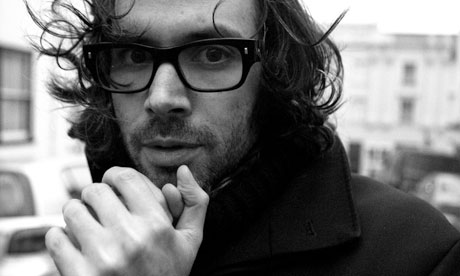Well, this is fascinating. Especially since I've been looking at a lot of shopper marketing recently, as well as talking to insurance people about how AJP region differs from, say, EMEA. Companies get astonishingly detailed info about people's habits, but having read the article below and seen the brilliant video that summarises Keith Chen's hypothesis, I wonder if they already look at what languages we speak to work out likelihood to X or Y. Article below by Derek Thompson, originally from Atlantic. The original article also has a chart you might find interesting, but the whole thing is summed up nicely in this video. Though I've got to say, the last bit about death and so on seems like latched-on stats. The link there is wooly, which is a shame, as I loved the rest of it. Anyway, make up your own mind:
[youtube=http://www.youtube.com/watch?v=S3G51gDHTXE&w=700]
Can Your Language Influence Your Spending, Eating, and Smoking Habits? An absurd-sounding claim leads to a surprising finding
Yes, I know. That headline. It looks like the most egregious form of causal inference. Americans don't save money because of ... our grammar? How utterly absurd. But bear with me.
In the 1930s, linguists proposed that the way we read, write, and talk helped to determine the way we see the world. Speakers of languages that had the same word for orange and yellow had a harder time actually distinguishing the colors. Speakers of the Kook Thaayorre language, which has no words for left and right, must orient themselves by north, south, east, and west at all time, which enhances their awareness of geographical and astronomical markers.
Last year, economist Keith Chen released a working paper (now published) suggesting speakers of languages without strong future tenses tended to be more responsible about planning for the future. Quick example. In English, we say "I will go to the play tomorrow." That's strong future tense. In Mandarin or Finnish, which have weaker future tenses, it might be more appropriate to say, "I go to the play tomorrow."
Chen wondered whether languages with weak future tenses would be more thoughtful about the future because they consider it, grammatically, equivalent to the present. He mapped stronger and weak future-tense languages across Europe and correlated the data with future-oriented behaviors like saving, smoking, and using condoms.
Remarkably, he discovered that speakers with weak future tenses (e.g. German, Finnish and Estonian) were 30 percent more likely to save money, 24 percent more likely to avoid smoking, 29 percent more likely to exercise regularly, and 13 percent less likely to be obese, than speakers of languages with strong future tenses, like English.

If your B.S. antennae are standing straight up (as mine were), you might be more interested in this next part. Chen next compared speakers born and raised within the same countries, as well, controlling for factors like age and number of children. He found the same results: Speakers with weak future tenses demonstrated dramatically, and statistically significantly, more responsible future-oriented behaviors -- even within countries like Switzerland, which are a motley blend of strong-future languages (like French) and weak-future languages (like German).
The correlation was savaged by some economists and linguists as facile or worse. But others re-ran the data and found, to their astonishment, that Chen seemed to be right. His paper was published (along with thanks to some of his fiercest critics) in the American Economic Review this year.
"One important issue in interpreting these results is the possibility that language is not causing but rather reflecting deeper differences that drive savings behavior," Chen concluded. Languages map to large groups of people, but so does religion, culture, family values, and a common history. Are Germans frugal because their language protects them from hyperbolic discounting, or is it just that, well, they're Germans?
That question doesn't have a satisfying answer, but this paper, as wild as it seems, isn't a radical departure from the literature. "Overall, my findings are largely consistent with the hypothesis that languages with obligatory future-time reference lead their speakers to engage in less future-oriented behavior," Chen wrote.
What does it mean? I have no idea, and Chen himself has responded to the criticism of his work with an honorable blend of erudition and shrugging disbelief. But I suppose that if you suffer from issues like crippling procrastination, as I do, it couldn't hurt to learn Estonian -- or, perhaps more simply, to write inspirational notes to yourself exclusively in the present tense. The future might be a different country, but it doesn't have to feel that way.







